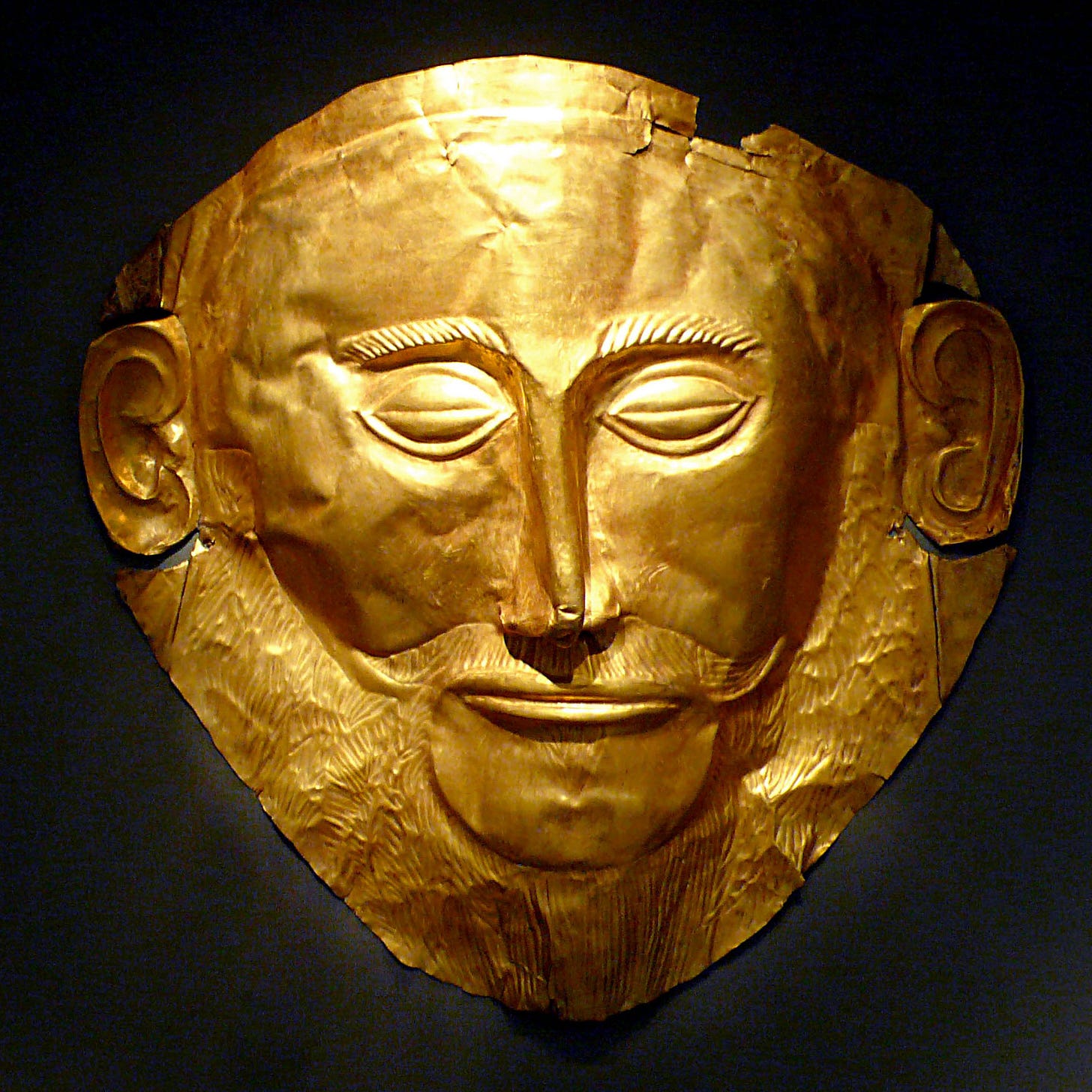Most of what we know about Bronze Age Greek comes from archaeology. This was before the advent of writing, which makes it hard to know with any certainty. Even dating is controversial.
It began in the Aegean Sea, around 3000 BC. This was the birth of civilization. Civilization involves the creation of permanent cities, rather than nomadic villages. Cities, unlike earlier villages, have part of their population who depend on others for their food. In cities, different people do different things. They become politicians, priests, bureaucrats, or other non-productive professions.
Minoans
On the island of Crete, a civilization was discovered by Sir Arthur Evans in the 20th century. He named it after the legendary King of Crete, named Minos. The Minoans were spread beyond Crete, and had a Mediterranean empire. It is the first civilization we know of in the era. The city of Knossos, in the northern shore of Crete, holds a massive palace. Minoan settlements look like the civilizations of the Middle East. The Minoans had a written language, but modern scholars haven’t cracked it yet. The Minoans were not Greeks. They did not speak Greek.
Mycenaeans
Greek-speaking peoples began to migrate across the Aegean about 1,000 years after the Minoans. Little is known about these early Greek settlers.
About 300 years later, the Mycenaeans appeared. Their name comes from Mycenae, in southern Greece. This Bronze Age culture ran from about 1600 BC to 1100 BC. They were the ancestors of what we would now call the ancient Greeks.
Mycenae was ruled by kings, who lived in palaces. The settlements were founded slightly inland, away from the sea to prevent invasion. The Mycenaeans relied on commercial overseas trade. The settlements were surrounded by farmland. Trade alone was not enough to secure one’s livelihood. They had to self-produce the food.
When Schliemann began digging at Mycenae, he found a bunch of graves, made of massive, well-worked stones. Kings were buried in elaborate, religious funerary sites. Golden death masks, jewels, and weapons were found. Those items were extremely expensive in the sacred soil.
The Mycenaeans, or at least their elites, were very rich. They engaged in large-scale trade all over the Mediterranean. They regularly traded as far as Egypt, Mesopotamia, and the Western Mediterranean. They sold aromatic oils, which came in small vials. The Greeks had no soap; they used olive oil, and literally scrapped off dirt from their bodies. The Mycenaeans used olive oil to produce nice-smelling perfumes.
Oriental monarchies
In the city-states of the Tigris and Euphrates, economic activity was single-handedly dominated by monarchies. Agriculture was the main activity. Kings doled out seeds to plant, and gave orders on when and how to harvest. This was the Near Eastern model of governance, based on centralized control at the hands of rich monarchies. It was true of Hammurabi and the Egyptian Pharaohs. These Near Eastern monarchs presented themselves as literal gods, with absolute powers. Hammurabi presented himself as being appointed by the gods. Separation of church and state did not exist, and is extremely rare throughout human history.
The Mycenaeans, therefore, imitated the Oriental despotisms of the Near East. The king owned his own estate, appointed bureaucratic officials, and commanded servants. There was no concept of law or justice; everything occurred by the king’s edict. The king was all-powerful, and controlled all aspects of legislation and executive power.
This lasted for 400 years, until a series of cataclysmic events radically reshaped Greece.
The Sea People
Around 1200 BC, the civilizations of the Mediterranean suffered from various invasions. The Egyptians were assaulted near the Nile Delta. They were collectively known as the Sea People. The dominant empire of Asia Minor at the time was Anatolia, ruled by the Hittites. At the same time, attacks occurred against Syria and Palestine. As far west as Italy and Sicily were attacked.
These invasions are very mysterious to modern scholars. Were they internal uprisings against the monarchies? Did droughts unleash an uncontrollable wave of human migrations? Was it an early form of climate change? No one really knows.
One of these invading peoples was the Achaeans, according to Homer. Mycenae itself was attacked, and many Greeks abandoned the settlement entirely. Something really bad must have happened.
Learn More





